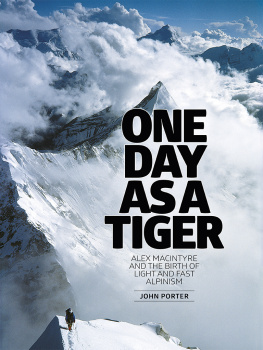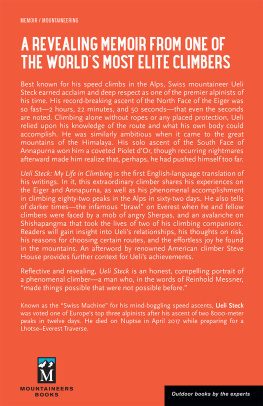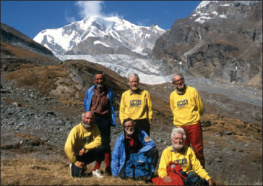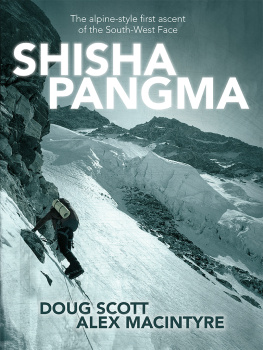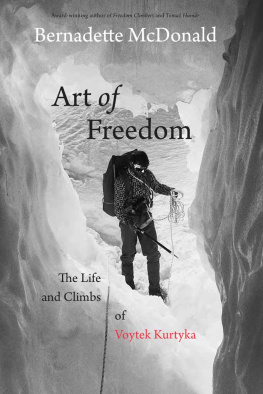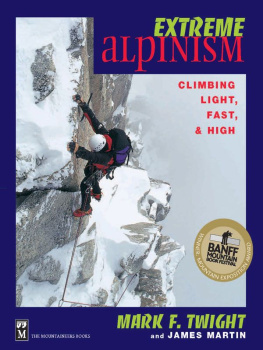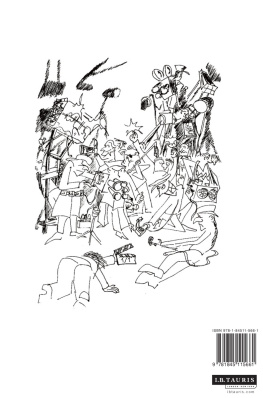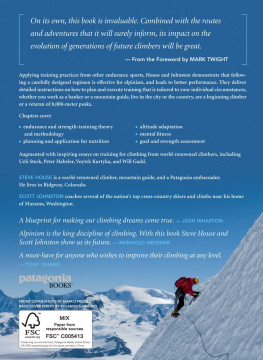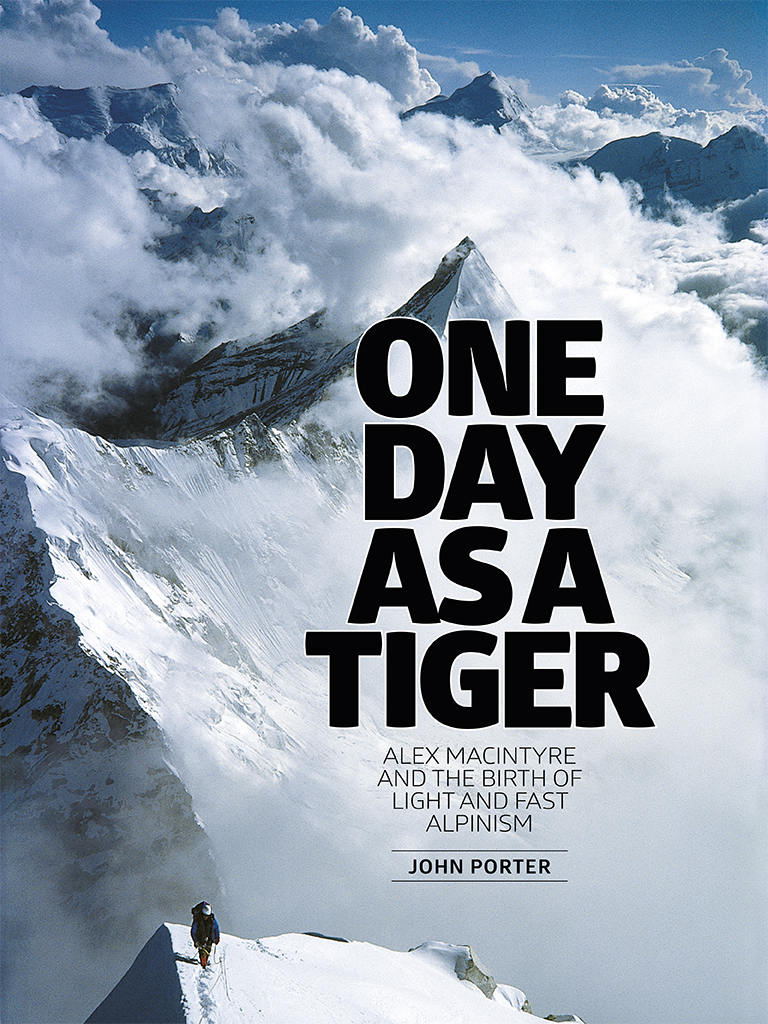and the mountains that owned him.
Foreword
It was John Porter who introduced me to the bakery with the best doughnuts in Chicken Street. I was on my first expedition and had just arrived in Kabul after a four-week bus journey from London, thrilled at last to be getting close to the mountains of the Hindu Kush. John was already on his way home, dealing masterfully, between doughnuts, with the Byzantine process of obtaining exit visas to leave Afghanistan a process made doubly complicated for him because he was part of a large Anglo-Polish expedition travelling through the Soviet Union.
This was 1977 and the world was still a long way from the end of the cold war. Getting a large team of Polish and British climbers to Afghanistan and back required a determined blend of diplomacy, skulduggery, luck and creative wheeler-dealing. Later that day in Kabul I met the expedition leader the hugely charming and persuasive Andrzej Zawada who struck a deal to sell his leftover expedition food to our team. He had just made an impressive first ascent of the north face of Kohe Mandaras with the British actor and climber Terry King. But it was John Porters buccaneering splinter group that made the biggest impression.
We didnt meet their Polish guru, Wojciech Kurtyka, but we did meet Alex MacIntyre, and I can still picture the wild gleam in his dark eyes as he and John gabbled manically about the gigantic east face of Koh-i-Bandaka. It was a tale of crumbling rock walls and towering icefields, of cataclysmic rockfalls, of cyclopean seracs, of bridges burned repeatedly. And the climax of the tale was the great central chimney, raked by falling stones, which they nicknamed the cyclotron the Atom Smasher.
Heady stuff. Suicidal, some might think. Except that the bravura was underpinned by years of alpine experience and lots of canny calculation. And, in case anyone thought that Koh-i-Bandaka was a one-off lucky escape, the same trio returned to the Himalaya the following year, with the addition of Krzysztof Zurek, to pull off an even more accomplished coup on the south face of Changabang. By which time Alex MacIntyre had already mapped out his future journey up the biggest unclimbed faces on the very highest peaks a journey which progressed according to plan, until it was brought to a sudden and brutal end in October 1982, by a single deadly stone on the south face of Annapurna.
Apart from a few chance encounters like the one in Kabul, I did not know Alex MacIntyre. But I read and enjoyed the few articles he wrote, and I have quoted from them in my own books. He was articulate, witty, self-confident and brazenly honest about his ambition. He showed what was possible on the worlds highest mountains and although few of his contemporaries could or event wanted to match his single-minded boldness, he influenced all of us. So, having followed his career from a distance all those years ago, it is fascinating now to read this book by someone who knew him so well. However, Johns book is not simply a biography of Alex MacIntyre. There is a lot about John in it too. But nor is it an autobiography. Nor is it a mountaineering history. Nor is it a conventional travel book. It has elements of all those genres, and a lot more besides, bravely defying glib categorisation.
Early in the book John mentions how his friend predicted that one day they would hang up their boots and become commentators. For Alex, that never happened. But John has now, at last, written that commentary, combining the wisdom of hindsight with the immediacy of great days recalled with detailed intensity. From 1977 to 1982 he was at the heart of what really was a golden age of Himalayan mountaineering, when the whole notion of what was possible changed radically. He gives us vivid narrative accounts of some of those climbs, but he also puts them in perspective, looking back to Edward Whymper and forward to Ueli Steck. Best of all, he gives us many of the previously unpublished back stories of a wild bunch going on wild adventures and generating some very funny stories. What a wonderful antidote to todays regime of sponsored athletes, Seven Summiteers and Everest package tours!
However, the golden age was tarnished with a tragic roll call of names of the fallen, including Peter Boardman, Joe Tasker, Roger Baxter-Jones, Georges Bettembourg and, of course, Alex MacIntyre, the key figure in the book, who emerges from this affectionate portrait as an altogether more sensitive, generous and ultimately troubled figure than his brash public persona. Climbers tend to shy away from serious discussion of death, but John recalls movingly the anguished conversations with sisters, mothers and girlfriends the ripples of grief emanating from a falling stone. He also gives a moving first-hand account the first to be published, I think of that final, ill-fated, expedition to Annapurna.
Stephen Venables
June 2014
Preface
While writing this book, I realised that the retelling of Alexs life also included my own very personal take on the climbing scene in those days. No doubt some of the characters in the book will have different memories of Alex and of those times. There are many people who I wish I had found time to see and record their thoughts but I could have done that forever. In the end, I had to be selective, and back up my memory with taped interviews of those who were part of our close circle of friends at that time. But there were many more conversations with old friends, often through chance encounters and email exchanges. I also had a wealth of articles from climbing media to research. Over the years, as the 1970s and 1980s receded as though seen through the wrong end of a telescope, I began to realise how difficult it was to get a true picture of everything that happened. There came a moment when I felt there was more than enough material to pull together into something like a coherent whole.
It must be remembered that most of the action takes place in a time nearer to the end of World War II than it is to the current era. Originally, I tried to take myself completely out of the book, writing as if I was Alex (on Ken Wilsons suggestion), but that proved impossible, in part because the intensity of our times and climbs together was best described in my own voice, and in part because there was no way I could match Alexs inimitable style of writing. So as a result, this story of Alex is not in any sense of the word a pure biography.
There are far more people to thank than I have capacity to remember. Firstly, I thank everyone who knew, loved and climbed with Alex and made a contribution to his life and story. Most importantly, Alexs mother Jean, whose insights into Alex and his friends remain the central contribution to the book around which everything else revolves. Without Jeans early support for the book, it would never have been written. The same is true of Alexs sister Libby and Sarah Richard. I would not have written about Alex without their sanction. They suffered his loss more than the rest of us can imagine.
In August last year, just as I realised I finally had enough material to finish the book, I was selected to join the Mountain and Wilderness Writing Programme at the Banff Centre in Alberta. The intensity of this programme forced me to make the most of the many hours spent writing in my personal studio folded into the snowy mountain woods. It provided the space and time to complete the core of the book, so thank you Banff Centre, and especially the Arts Faculty, for that opportunity. The critical insights of the two tutors on the programme Tony Whittome and Marni Jackson directed me toward the structure that (hopefully) holds the different levels of the book together. And of course I was not alone; the encouragement and critical friendship from the rest of the programme members Jack Tackle, Rebecca Loncraine, Sarah Johnson, Aaron Spitzer and Lyndsie Bourgon made me more determined than ever to finally get it done. Back home over recent weeks thanks to Ed Douglas for copy-editing and all the team at Vertebrate Publishing, especially John Coefield and Jon Barton.

